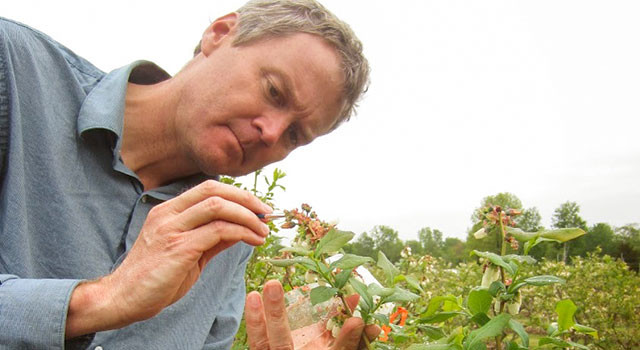One professor has dared to ask what’s buzzing with the bees.
In a recent study conducted jointly with Harvard University, Rubenstein professor Taylor Ricketts concluded that people are worse off as the number of pollinators continues to drop off annually.
“If bees disappear, will we have worse diets overall because of it,” Ricketts said.
He said the study looks at consumption of key micronutrients, such as folate or vitamin A, in four separate third world countries: Zambia, Mozambique, Bangladesh and Uganda.
“We simulated a world without pollinators,” Ricketts said. “Say 50 percent of the mango crop is directly due to insect pollination, so in our simulation we subtracted the correlating amount of nutrients from the diets of people in the test areas.”
Measuring the percentage of people who would cross the line into malnourishment, Ricketts said the data showed a dependence on insect pollination.
“We found that Mozambique would be the most prone to malnourishment, with the potential for up to 56 percent of their population to spiral into malnutrition,” he said.
The micronutrient found to be the most dependent on bees was vitamin A. Vitamin A deficiency is quickly becoming one of the leading causes of death in malnourished areas, according to the study.
Symptoms include a weakened immune system and stunted growth, especially among children. Ricketts cites three things that are leading to the decline of pollinators.
“Human encroachment on their territory, farmer pesticides, as well as viruses and parasites that naturally kill bees are all leading to their decline,” he said.
However, Ricketts doesn’t believe that the simulated scenario where all of the world’s pollinators die out would ever come to pass – not in full, at least.








